
Dohuk Governorate: The Hidden Gem of Northern Iraq
Nestled in the picturesque landscape of northern Iraq, Dohuk Governorate is a treasure trove waiting to be explored. With its stunning mountains, lush valleys, and rich cultural heritage, it offers a unique blend of natural beauty and historical significance. Dohuk city, the capital of the governorate, is a vibrant hub that boasts a mix of modern amenities and traditional charm. The city is known for its beautiful parks, bustling markets, and the stunning Dohuk Dam, which provides a perfect backdrop for a relaxing day by the water. The friendly locals add to the charm, making every visitor feel at home. Beyond the city, the governorate is dotted with ancient sites and cultural landmarks. The Amadiya village, perched on a mountain plateau, offers breathtaking views and a glimpse into centuries-old history with its ancient gate and mosque. Moreover, the region's natural wonders, such as the Gara Mountain and the Bekhal Waterfalls, provide endless opportunities for outdoor enthusiasts. Whether you're a history buff, nature lover, or simply looking to experience the warmth of Kurdish hospitality, Dohuk Governorate promises an unforgettable journey.
Local tips in Dohuk Governorate
- Visit in spring or autumn for the best weather and scenery.
- Hire a local guide to explore the historical sites in Amadiya.
- Check out Dohuk's local markets for unique Kurdish handicrafts.
- Don't miss the sunset views from the Dohuk Dam.
- Try traditional Kurdish dishes at local eateries for an authentic culinary experience.
Dohuk Governorate: The Hidden Gem of Northern Iraq
Nestled in the picturesque landscape of northern Iraq, Dohuk Governorate is a treasure trove waiting to be explored. With its stunning mountains, lush valleys, and rich cultural heritage, it offers a unique blend of natural beauty and historical significance. Dohuk city, the capital of the governorate, is a vibrant hub that boasts a mix of modern amenities and traditional charm. The city is known for its beautiful parks, bustling markets, and the stunning Dohuk Dam, which provides a perfect backdrop for a relaxing day by the water. The friendly locals add to the charm, making every visitor feel at home. Beyond the city, the governorate is dotted with ancient sites and cultural landmarks. The Amadiya village, perched on a mountain plateau, offers breathtaking views and a glimpse into centuries-old history with its ancient gate and mosque. Moreover, the region's natural wonders, such as the Gara Mountain and the Bekhal Waterfalls, provide endless opportunities for outdoor enthusiasts. Whether you're a history buff, nature lover, or simply looking to experience the warmth of Kurdish hospitality, Dohuk Governorate promises an unforgettable journey.
When is the best time to go to Dohuk Governorate?
Iconic landmarks you can’t miss
Family Mall Duhok
Experience world-class shopping, dining, and entertainment at Family Mall Duhok, the largest and most modern mall in the Kurdistan Region.
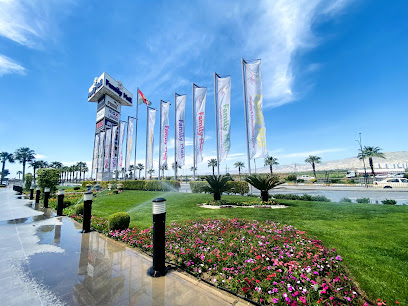
Duhok Bazar
Experience the vibrant culture of Duhok at its bustling bazaar, offering traditional crafts, local flavors, and a taste of Kurdish life.
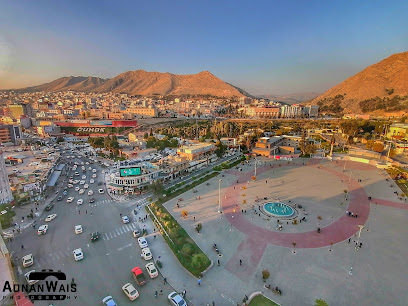
Duhok Zoo
Discover diverse wildlife in naturalistic habitats at Duhok Zoo, a family-friendly attraction in the heart of the Kurdistan Region.
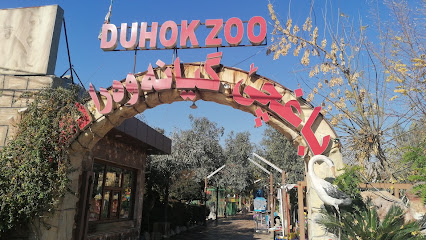
Dream City
Experience thrilling rides and family fun at Dream City, Duhok's ultimate amusement park, offering a magical escape for all ages.
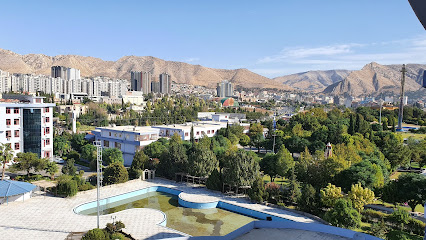
مصيف سيبة
مصيف سيبة في عقرة: طبيعة خلابة، أجواء منعشة، وتجربة سياحية لا تُنسى.
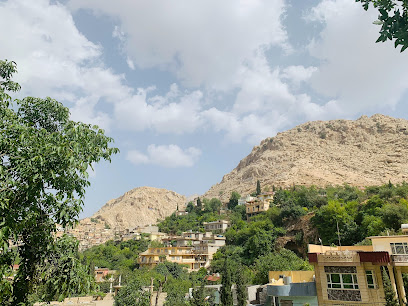
Azadî Park
Escape to Azadî Park in Duhok: A peaceful oasis with lush greenery, cultural events, and recreational paths for everyone to enjoy.
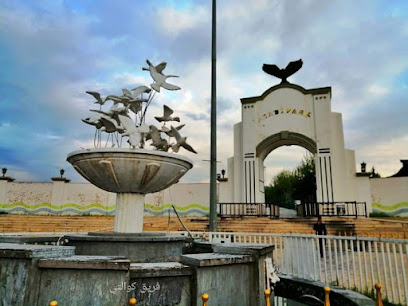
Zawa mountain چیایێ زاوا
Escape to Zawa Mountain in Duhok: Hike scenic trails, breathe fresh air, and discover stunning panoramic views of the region's natural beauty.
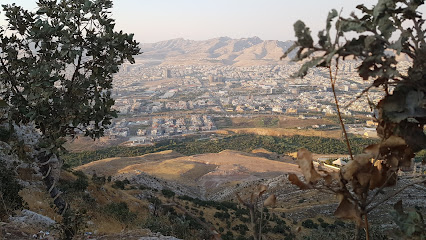
Dohuk Valley Waterfall - Sîlava Gelîyê Dûhokê
Discover the serene beauty of Dohuk Valley Waterfall, a natural escape in the heart of Iraqi Kurdistan's picturesque landscapes.
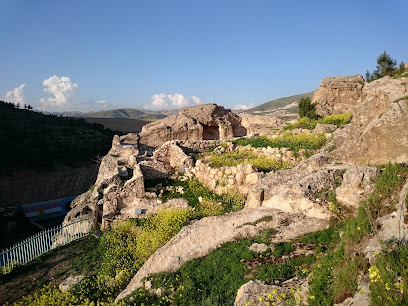
Zawa Park
Escape to nature in Zawa Park, Duhok: scenic views, tranquil gardens, and a peaceful retreat for all.
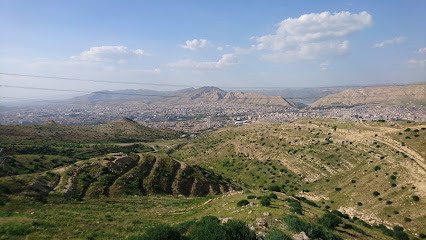
Barzani Park
Discover tranquility in Duhok at Barzani Park, a lush green space perfect for relaxation, family outings, and experiencing local culture.
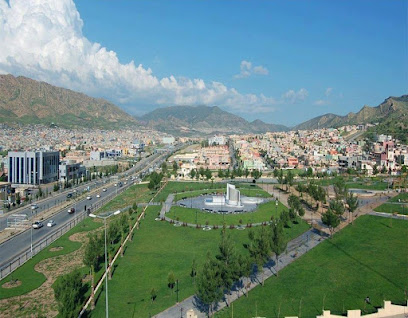
Zerî Park
Experience thrilling rides, family fun, and delicious food at Zerî Park, Duhok's premier theme park for unforgettable memories.
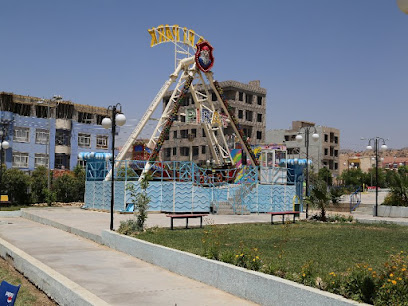
كهف بهيري
Discover Kehf Behiri, a natural cave and spring near Zakho, offering tranquility and stunning landscapes in the heart of Duhok Governorate.
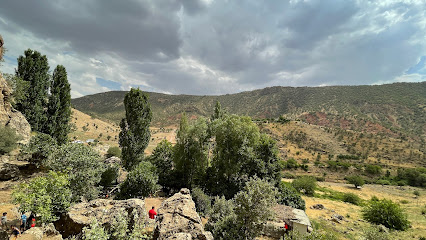
گەلی شێران - ئاڤا شین
Escape to the mountains at Geli Sheran - Ava Shin, a tranquil resort near Amedi offering stunning views and relaxation.
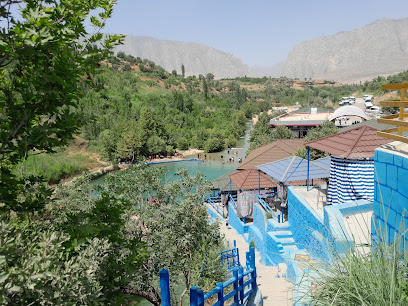
Dilshad Said Park
Escape to Duhok's tranquil Dilshad Said Park: a green oasis named for a Kurdish music legend, perfect for relaxation and recreation.
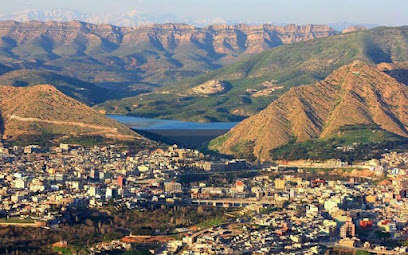
Bablo Park
Escape to Bablo Park in Duhok: Mountain views, family fun, swimming, and cable car rides await!
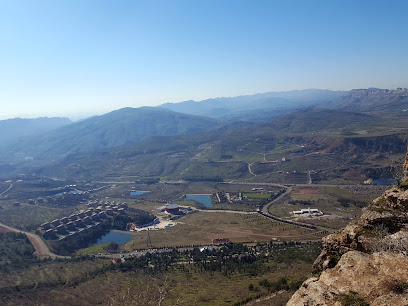
Unmissable attractions to see
Duhok Zoo
Discover diverse wildlife in a well-designed habitat at Duhok Zoo, a perfect family destination in the heart of Kurdistan.
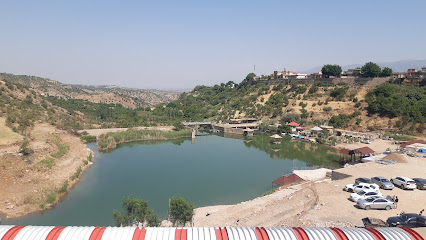
Dream City
Experience thrilling rides and serene landscapes at Dream City in Duhok, a perfect destination for family fun and unforgettable memories.
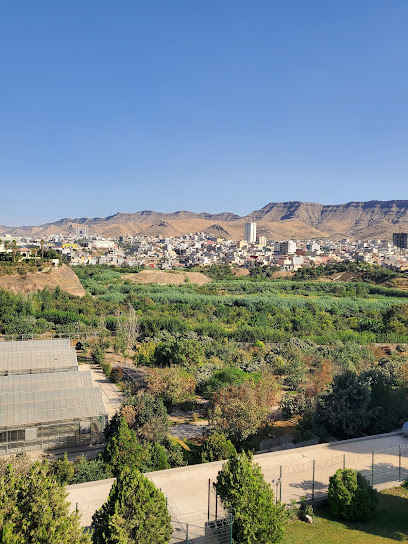
Azadî Park
Discover a peaceful oasis in Duhok: Azadî Park, where nature, culture, and recreation meet for an unforgettable experience.
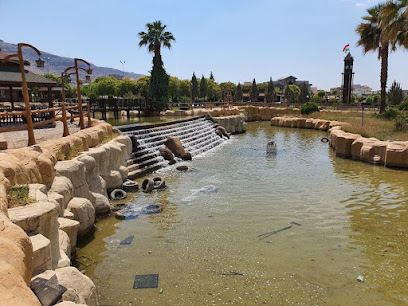
Zawa mountain چیایێ زاوا
Hike through stunning landscapes, and experience panoramic views from Zawa Mountain, a revitalized natural haven in Duhok.
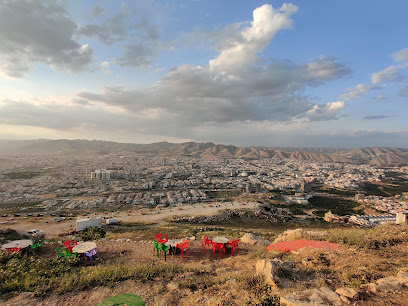
Zawa Park
Escape to nature at Zawa Park in Duhok: scenic beauty, outdoor activities, and cultural experiences await!
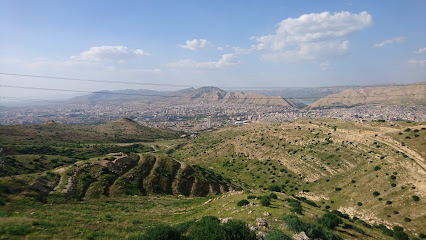
Barzani Park
Escape to nature in the heart of Duhok at Barzani Park, a serene green space perfect for families, nature lovers, and those seeking tranquility.
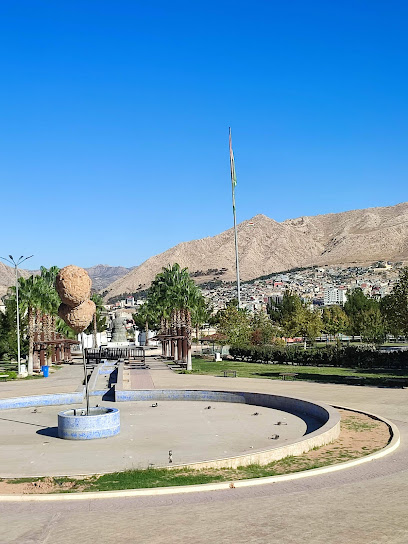
Dilshad Said Park
Escape to tranquility in Duhok's Dilshad Said Park: a green oasis offering relaxation, natural beauty, and a touch of Kurdish culture.
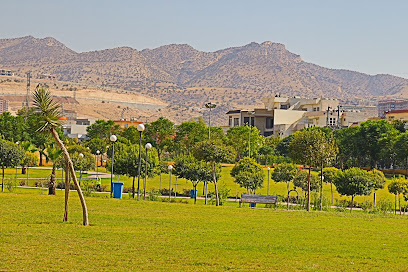
Dam Lake Dohuk
Escape to the tranquility of Dam Lake Dohuk: a scenic retreat offering natural beauty and recreational activities in Iraqi Kurdistan.
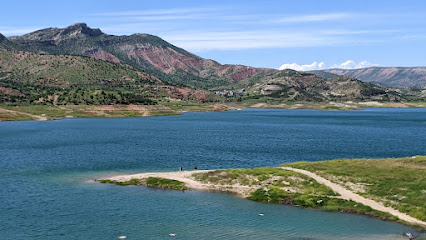
Tahseen Taha Park
Escape to Tahseen Taha Park in Duhok: a green sanctuary offering peaceful walks, picnic spots, and a refreshing retreat in the city's heart.
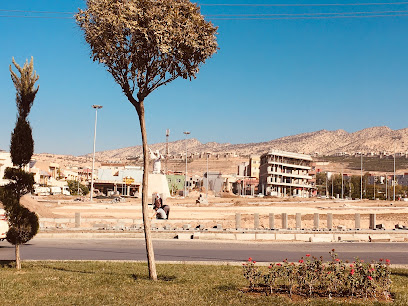
متنزه سد دهوك
Escape to Duhok Dam Park for serene lakeside views, outdoor activities, and a tranquil retreat amidst the beauty of Iraqi Kurdistan.
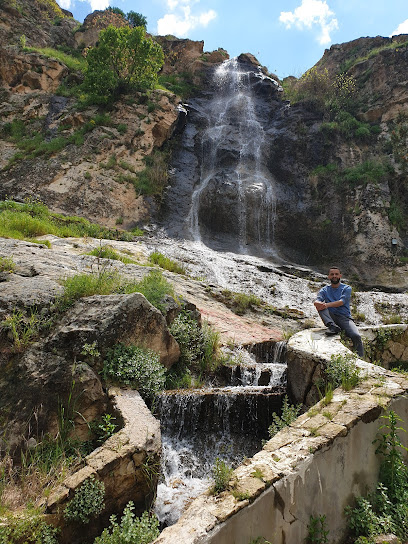
ILLUSION MUSEUM DUHOK
Experience mind-bending optical illusions and interactive exhibits at the Illusion Museum Duhok, where art and science collide for unforgettable fun.
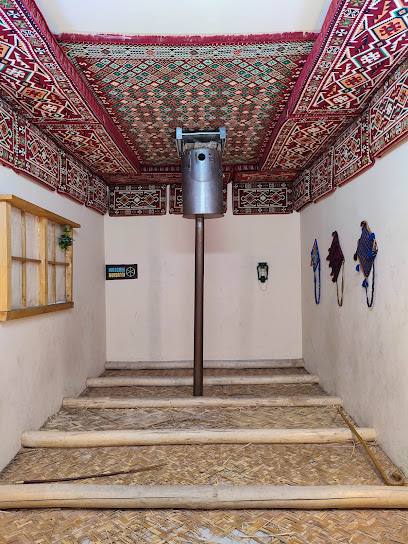
Nawroz Park
Escape to nature in Duhok's Nawroz Park: scenic trails, family fun, and a peaceful retreat for locals and tourists alike.
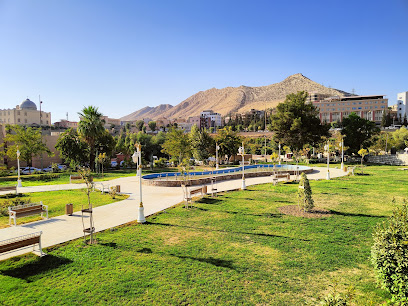
Azadi Panorama
Discover Azadi Panorama in Duhok: A serene garden escape with stunning views, perfect for relaxation and cultural immersion.
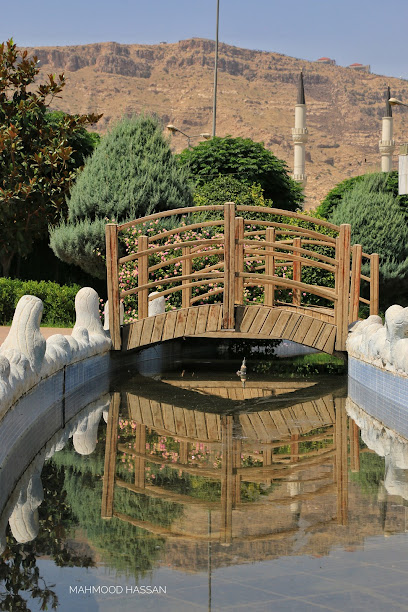
Swaratuka
Discover the serene beauty and rich cultural heritage of Swaratuka, a hidden gem in the Duhok Governorate, perfect for adventurers and culture lovers alike.
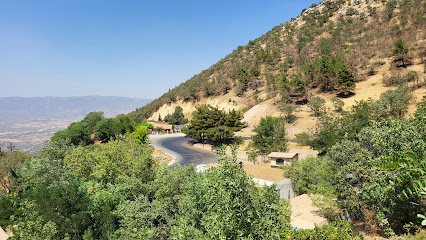
مصيف بيدول
Escape to Bedol Resort: Discover scenic beauty and tranquility in Nineveh Governorate, perfect for relaxation and nature walks.
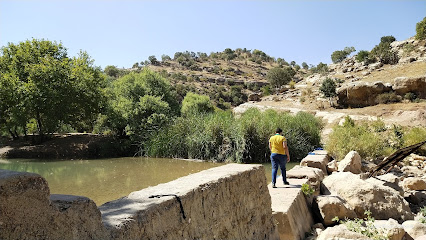
Essential places to dine
Khan Kebab
Discover the essence of Iraqi cuisine at Khan Kebab in Duhok – where flavor meets tradition in every delicious bite.
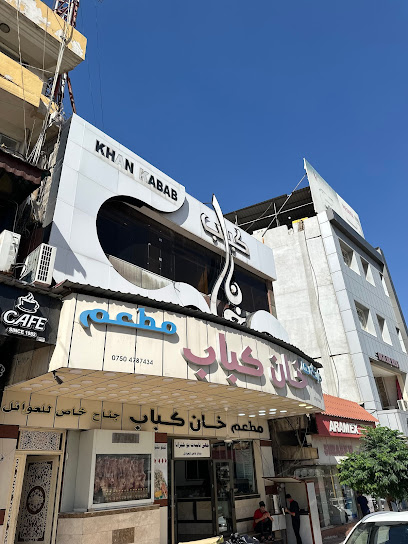
Malta Restaurant & Cafe Duhok
Experience the essence of Middle Eastern cuisine at Malta Restaurant & Cafe Duhok with diverse flavors and warm hospitality.
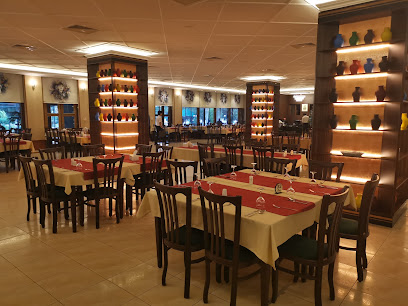
Shoresh Restaurant
Discover authentic Kurdish cuisine at Shoresh Restaurant in Duhok – where flavor meets affordability in a welcoming atmosphere.
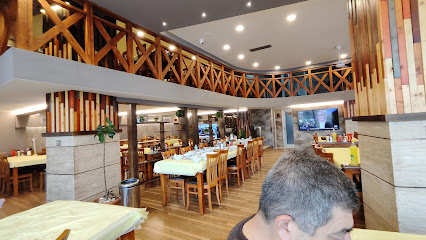
Akre Restaurant
Discover authentic Iraqi flavors at Akre Restaurant in Duhok—where every dish tells a story.
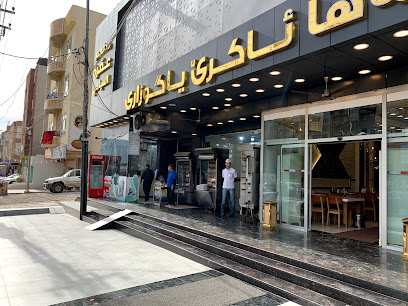
Geverke Restaurant
Discover authentic Kurdish flavors at Geverke Restaurant in Duhok – where tradition meets taste in every dish.
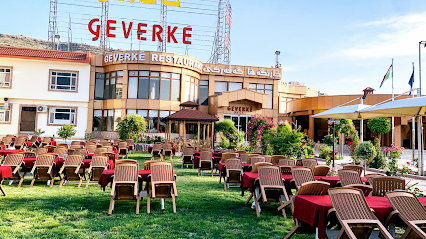
Shindokha Restaurant
Experience authentic Kurdish flavors at Shindokha Restaurant in Duhok—where every dish tells a story.
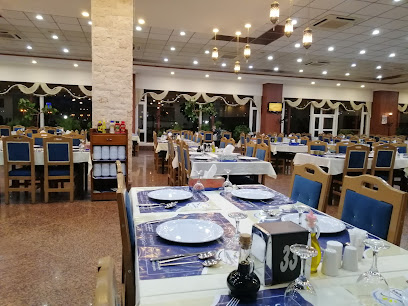
Zaynal Usta Restaurant
Experience the essence of Iraqi cuisine at Zaynal Usta Restaurant in Duhok – where tradition meets flavor.
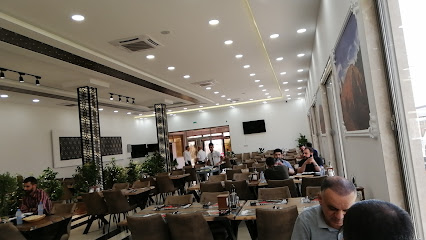
Nmlie Restaurant & Cafe - Duhok
Discover culinary excellence at Nmlie Restaurant & Cafe in Duhok - where stunning views meet delightful flavors.
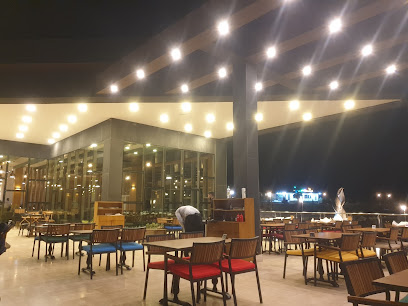
Tandory Rest.
Discover authentic flavors at Tandory Restaurant in Duhok, where traditional cuisine meets warm hospitality.
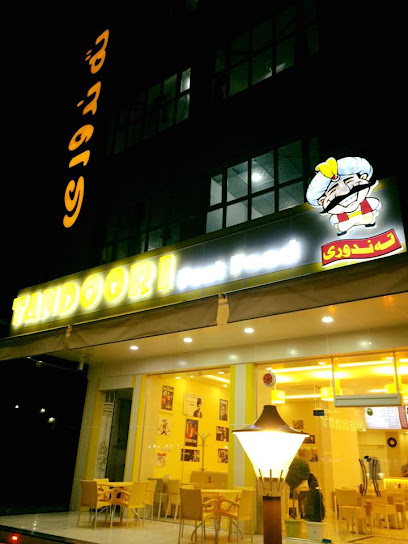
Media Saray Restaurant & Cafe
Experience exceptional dining at Media Saray Restaurant & Cafe in Duhok – where tradition meets contemporary cuisine.
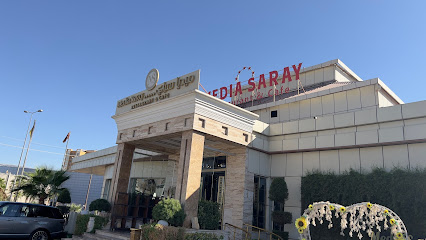
Nawroz Palace Restaurant
Discover the flavors of Iraq at Nawroz Palace Restaurant in Duhok – where tradition meets modern dining in an inviting atmosphere.
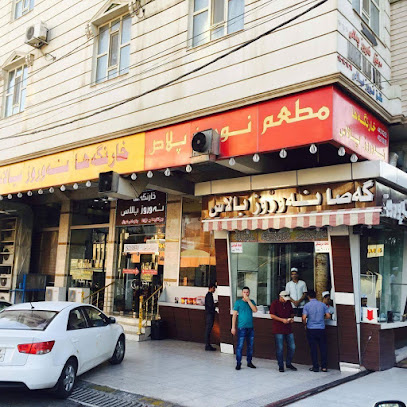
Torino Pizza
Savor the best pizzas in Duhok at Torino Pizza – where flavor meets tradition!
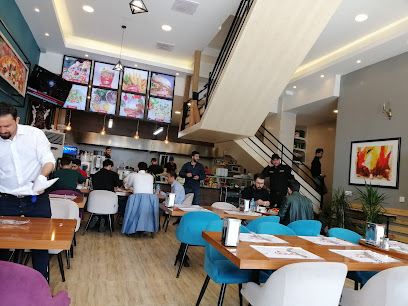
DDK Restaurant and Cafe
Experience the best of Kurdish cuisine at DDK Restaurant and Cafe in Duhok - where flavor meets tradition in every bite.
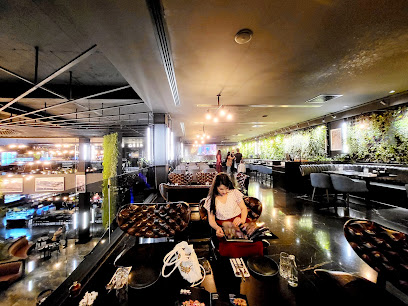
Grand Cafe & Restaurant مطعم و كافي گراند
Experience authentic Turkish cuisine at Grand Cafe & Restaurant in Duhok - where flavor meets tradition.
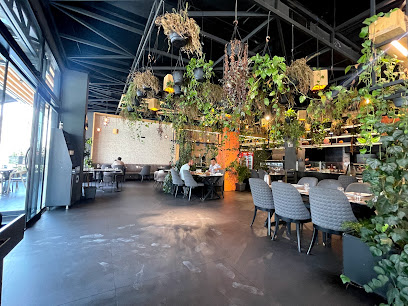
Safeen Restaurant
Experience authentic Kurdish cuisine at Safeen Restaurant in Duhok—where flavors meet tradition in a warm and inviting atmosphere.
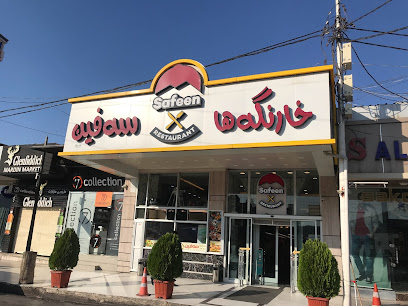
Markets, malls and hidden boutiques
Family Mall Duhok
Discover the ultimate shopping experience at Family Mall Duhok, featuring a diverse selection of shops, dining, and family-friendly entertainment.
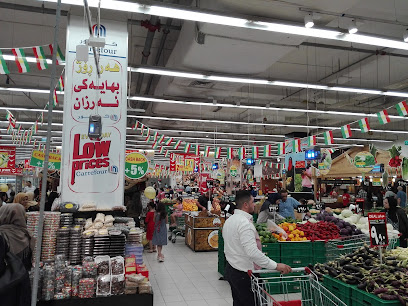
Duhok Mall
Explore Duhok Mall - a modern shopping paradise featuring diverse retail, delicious dining, and exciting entertainment in the heart of Duhok.
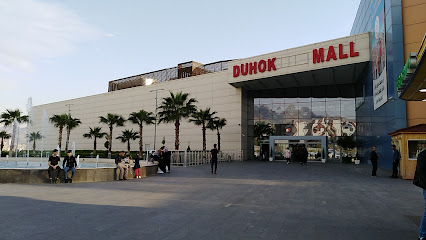
Fawzi mall
Discover the vibrant flavors of Asia at Fawzi Mall, Duhok's premier Asian grocery store featuring authentic products and cultural treasures.
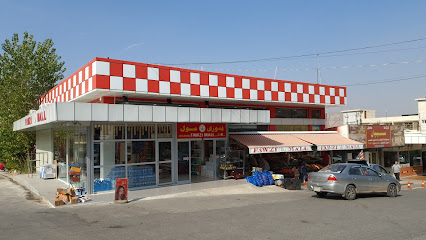
Centrepoint
Discover the essence of shopping at Centrepoint in Duhok, where fashion meets family in a vibrant retail experience.
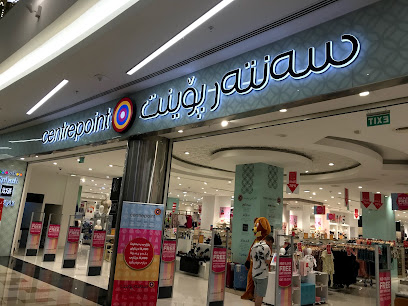
كارفور دهوك inCity
Explore the vibrant styles at Carrefour Duhok, where local fashion meets international trends in a delightful shopping experience.
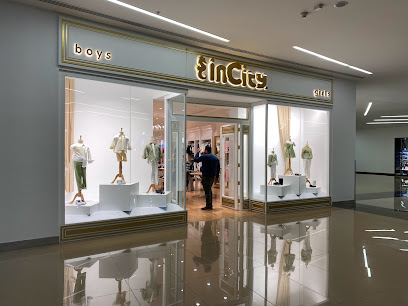
Livea shop
Explore Duhok's vibrant fashion scene at Livea Shop, where unique styles and local flair come together in a charming market atmosphere.
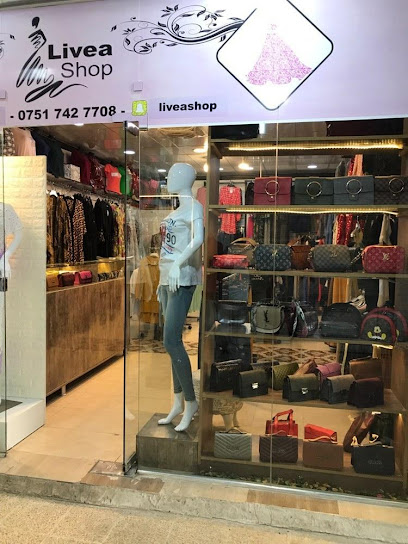
Sipal star
Explore Sipal Star Gift Shop in Duhok for unique local gifts and souvenirs that capture the spirit of your travels.
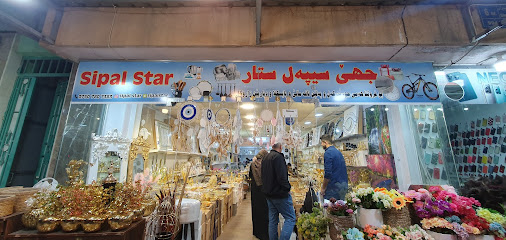
Queen Boutique
Discover unique styles and exquisite quality at Queen Boutique in Duhok, a must-visit fashion destination for every traveler.
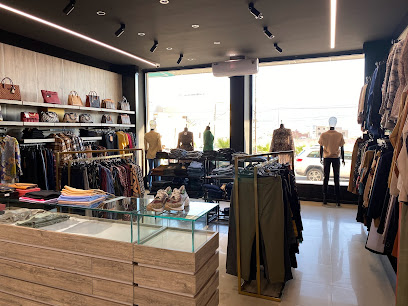
Black Store
Explore Duhok's cultural treasures at Black Store, a unique antique shop offering a glimpse into the region's rich history and craftsmanship.
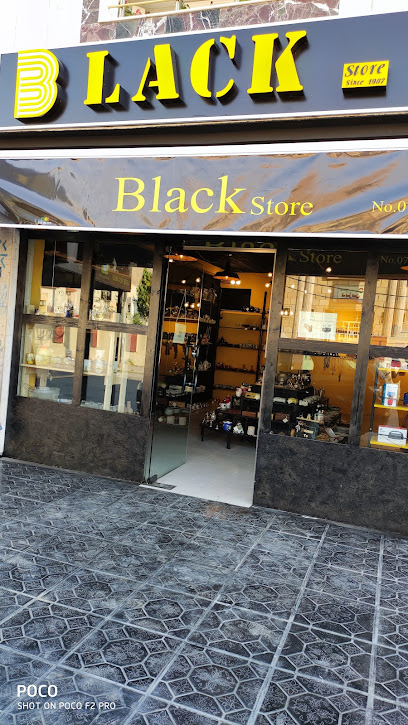
Elite store duhok
Explore Elite Store Duhok for an unforgettable shopping experience filled with beauty, quality products, and exceptional service.

Mizori Collection Duhok Family Mall
Explore a world of captivating fragrances at Mizori Collection, Duhok's premier perfume store, located in the vibrant Family Mall.
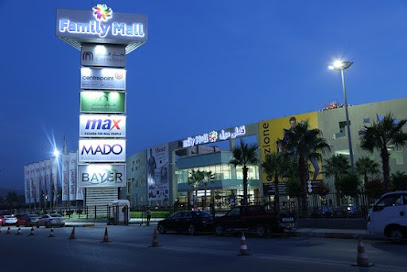
HAYA STORE
Shop for unique handmade souvenirs at HAYA STORE in Duhok, where every item reflects the rich culture and craftsmanship of Iraq.
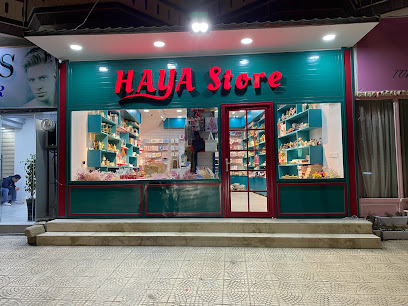
Anka Boutique
Discover unique fashion and local handicrafts at Anka Boutique in Duhok, where culture meets style.
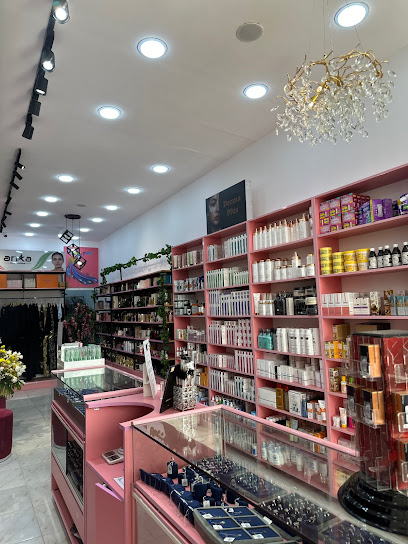
Original show2
Explore Duhok's vibrant home goods market, a cultural hub brimming with unique crafts and local flavors, perfect for memorable souvenirs.
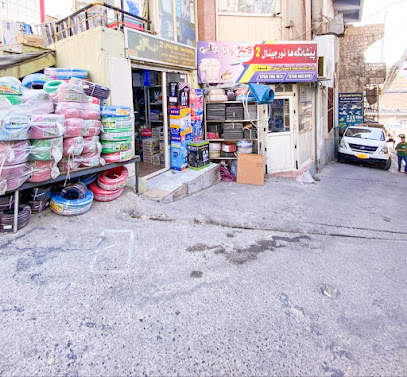
يوناني 2
Experience the vibrant culture of Duhok at يوناني 2, where local craftsmanship meets the charm of Kurdish traditions.
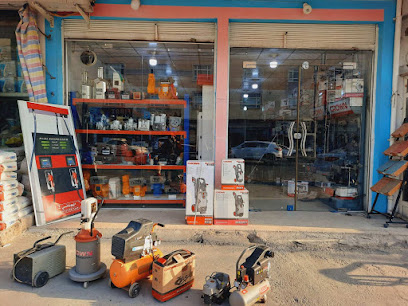
Essential bars & hidden hideouts
EFES BAR DUHOK
Experience the vibrant nightlife of Duhok at EFES BAR DUHOK, where great drinks meet a welcoming atmosphere in the heart of Kurdistan.
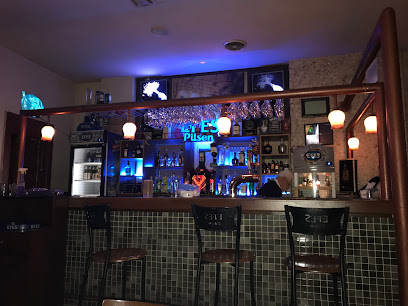
Babylon Club
Experience the vibrant nightlife of Duhok at Babylon Club, a lively bar offering delicious drinks and an inviting atmosphere.
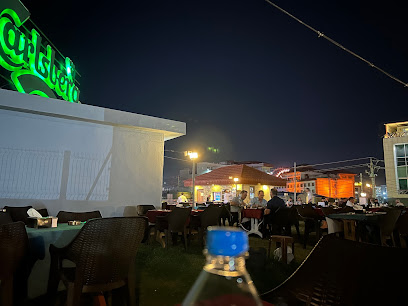
Gorangaa Bar And Restaurant
Experience the vibrant flavors and lively atmosphere of Gorangaa Bar And Restaurant, a grill paradise in the heart of Mangesh.
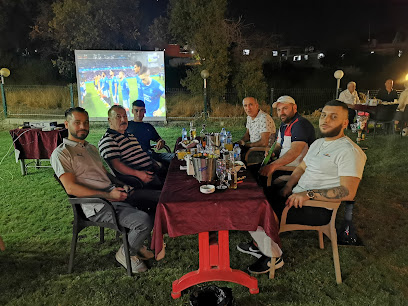
Bells Bar
Experience the lively atmosphere of Bells Bar in Duhok, where friendly faces and refreshing drinks await you every night.
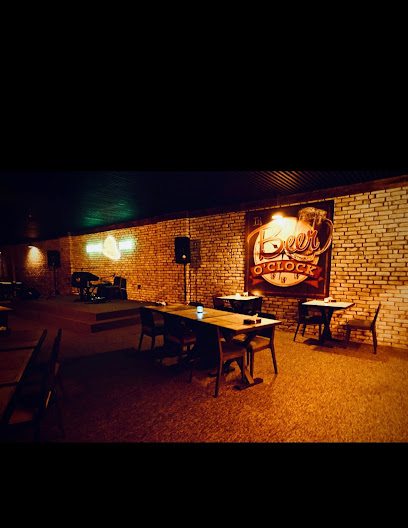
Nino Rest and Bar
Discover the vibrant flavors of Duhok at Nino Rest and Bar, where grilled delights and a lively atmosphere await you.
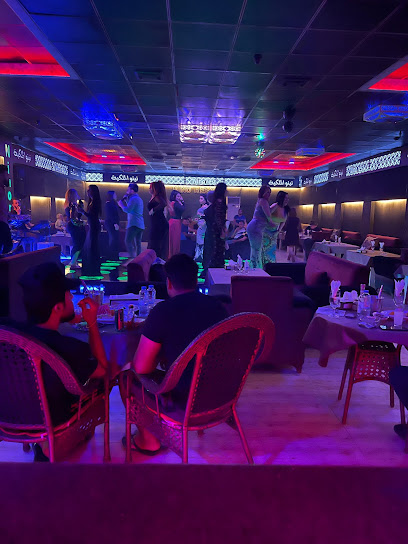
محل انور للمشروبات
Experience the vibrant nightlife at محل انور للمشروبات in Duhok, featuring an extensive drink menu and a friendly atmosphere for all.
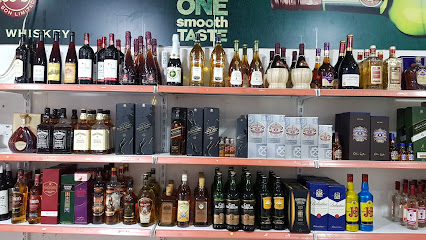
Heineken shop
Experience the vibrant nightlife at Heineken Shop in Duhok, where a wide selection of liquors and an inviting atmosphere await every visitor.
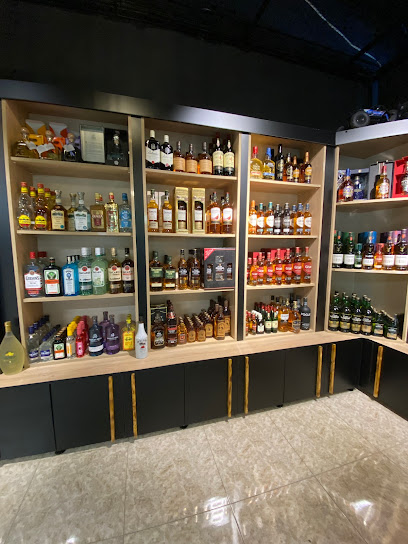
Zerain bar
Experience the vibrant nightlife of Duhok at Zerain Bar, where traditional charm meets modern flair in every drink.
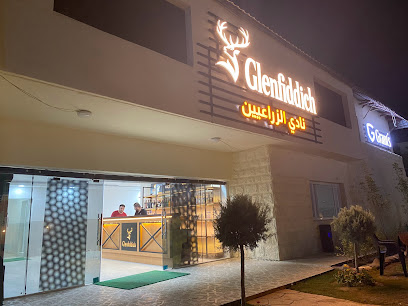
aram drink shop
Experience the vibrant atmosphere and local flavors at Aram Drink Shop, a cozy bar in the heart of Duhok, perfect for relaxation and socializing.

New bar
Experience the lively nightlife at Sharya's New Bar, where great drinks and a friendly atmosphere await every visitor.
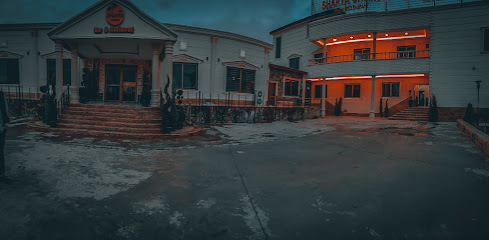
بار افرست (Avrest bar)
Discover the lively Avrest Bar in Duhok, where excellent drinks and a vibrant atmosphere create an unforgettable nightlife experience.
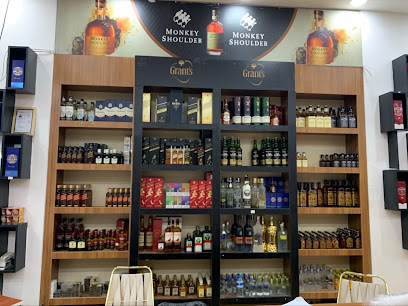
LIKE REST
Unwind at LIKE REST, Duhok's vibrant bar offering an eclectic drink menu and a lively atmosphere for a memorable nightlife experience.
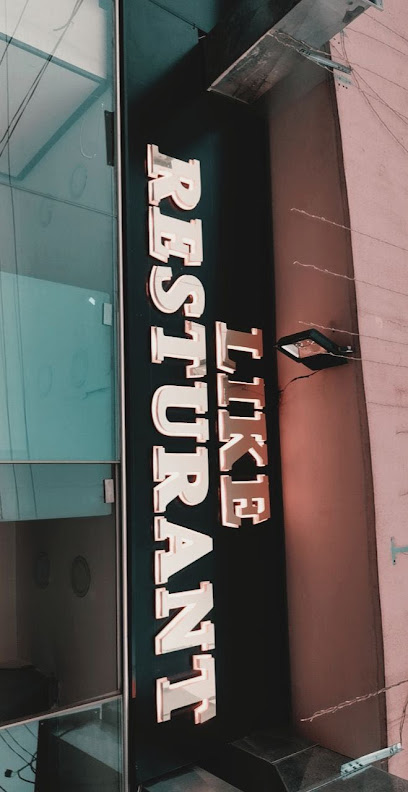
Omall hall
Experience the vibrant nightlife at Omall Hall, a lively bar in Duhok offering a perfect blend of drinks, music, and a welcoming ambiance for all visitors.

Duhok gece bar
Discover Duhok Gece Bar, a lively hotspot in Duhok, offering an unforgettable nightlife experience with drinks, music, and a vibrant atmosphere.

Local Phrases about Dohuk Governorate
-
- Helloسڵاو
[sllaw] - Goodbyeخداحافظ
[khuda hafiz] - Yesبەڵێ
[belle] - Noنەخێر
[nekhayr] - Please/You're welcomeتکایە
[takaye] - Thank youسوپاس
[supas] - Excuse me/Sorryببورە
[bobore] - How are you?چۆنییت؟
[chonyit?] - Fine. And you?بەخیر. تۆ چۆن؟
[bekhayr. to chon?] - Do you speak English?ئینگلیزی دەگوت؟
[Englishi degot?] - I don't understandنازانم
[nazanam]
- Helloسڵاو
-
- I'd like to see the menu, pleaseدەتەوێت لیست ببینیت، تکایە
[detewet list bibenit, takaye] - I don't eat meatمێن نەخێرم
[men nekhayrm] - Cheers!پیاوبەخشی
[pyawbakhshi] - I would like to pay, pleaseدەتەوێت پارە بدەیت، تکایە
[detewet pare bdayt, takaye]
- I'd like to see the menu, pleaseدەتەوێت لیست ببینیت، تکایە
-
- Help!یارمەتی!
[yarmeti!] - Go away!دەرگا بڕۆ!
[derga bero!] - Call the Police!پۆلیس بپەخشە!
[polis bepakhsha!] - Call a doctor!دۆکتۆر بپەخشە!
[doktor bepakhsha!] - I'm lostڕۆیبم
[roibm] - I'm illنیمەزارم
[nimezarm]
- Help!یارمەتی!
-
- I'd like to buy...دەتەوێت خەرید بکەیت...
[detewet kherid bkeyt...] - I'm just lookingتەنها بینراوم
[tenha binraom] - How much is it?چیت پارەیە؟
[chet pareye?] - That's too expensiveئەوە زۆر گرانە
[awe zor grane] - Can you lower the price?دەتوانی پارە بەرزی بکەیت؟
[detwani pare berzi bkeyt?]
- I'd like to buy...دەتەوێت خەرید بکەیت...
-
- What time is it?چند وقتە؟
[chand waqte?] - It's one o'clockیەکەم وقتە
[yekam waqte] - Half past (10)نیم ساعت لە (دە).
[naim sa'at le (de).] - Morningبەیانی
[beyani] - Afternoonپاشینی
[pashini] - Eveningئێواره
[ewara] - Yesterdayدوێنێ
[doyene] - Todayئەمڕۆ
[amro] - Tomorrowسەرۆ
[sero] - 1یەک
[yek] - 2دوو
[dow] - 3سێ
[se] - 4چوار
[chwar] - 5پێنج
[penj] - 6شەش
[shesh] - 7حەوت
[hewt] - 8هەشت
[hasht] - 9نۆ
[no] - 10دە
[de]
- What time is it?چند وقتە؟
-
- Where's a/the...?لە کۆنایەت یان...؟
[le konyate yan...?] - What's the address?ناونیشان چییە؟
[nawnyshan chyiye?] - Can you show me (on the map)?دەتوانی پیشانم بدەیت (لەسەر نەخشە؟
[detwani peshanm bdayt (leser neksha?] - When's the next (bus)?کاتێک (ئاوتۆبۆس) گرێ؟
[katek (autobos) gray?] - A ticket (to ....)وشەیەک (بۆ ...)
[wesheyeke (bo ...)]
- Where's a/the...?لە کۆنایەت یان...؟
History of Dohuk Governorate
-
Dohuk Governorate, historically known as Nineveh, was a crucial region within the vast Assyrian Empire. Dating back to the 25th century BCE, the area was integral to the empire's administrative and military operations. Numerous archaeological sites, such as the ruins of ancient cities and fortresses, provide a glimpse into the sophisticated urban planning and architectural prowess of the Assyrians.
-
During the medieval period, Dohuk was part of several Kurdish principalities, including the Bahdinan Emirate. Founded in the 14th century, the Bahdinan Emirate played a significant role in the political and cultural development of Kurdish society. The emirate was known for its fortified towns and castles, many of which still dot the landscape today.
-
In the 16th century, Dohuk came under Ottoman control, becoming part of the Mosul Vilayet. The Ottomans introduced new administrative structures, taxation systems, and architectural styles to the region. The influence of Ottoman rule is still evident in the old bazaars and caravanserais that can be found in the governorate.
-
Following the collapse of the Ottoman Empire after World War I, Dohuk became part of the newly established Kingdom of Iraq in 1921. The region saw significant political and social changes as Iraq transitioned from monarchy to republic in the mid-20th century. The Kurdish population in Dohuk played a pivotal role in the struggle for Kurdish autonomy during this period.
-
In the late 1980s, Dohuk Governorate was heavily affected by the Anfal Campaign, a genocidal campaign led by Saddam Hussein's regime against the Kurdish people. Thousands of Kurds were killed, and many villages were destroyed. Despite this dark chapter, the resilience and cultural pride of the Kurdish people have led to a revival of the region in recent decades.
-
Since the establishment of the Kurdistan Regional Government (KRG) in the early 1990s, Dohuk has experienced a cultural and economic renaissance. The city of Dohuk has transformed into a vibrant urban center, hosting universities, cultural festivals, and modern infrastructure. The preservation of traditional Kurdish culture, alongside modern development, makes Dohuk Governorate a unique and dynamic destination.
Dohuk Governorate Essentials
-
Dohuk Governorate is located in the northern part of Iraq. The closest international airport is Erbil International Airport (EBL), approximately 150 kilometers away. From Erbil, you can take a taxi or arrange for a private transfer to Dohuk, which typically takes around 2 to 3 hours by road. Additionally, there are buses and shared taxis (known locally as 'coasters') that operate between Erbil and Dohuk.
-
Within Dohuk Governorate, taxis are the most common form of transportation and are relatively affordable. For short distances, you can also use local buses or shared taxis. If you prefer more flexibility, renting a car is an option, but be aware that road conditions can vary. Walking is feasible in certain areas, especially in downtown Dohuk where many attractions are close to each other.
-
The official currency in Iraq is the Iraqi Dinar (IQD). Credit cards are accepted in some hotels, restaurants, and larger stores, but it is advisable to carry cash, especially in smaller establishments and rural areas. ATMs are available in Dohuk, but it is wise to withdraw sufficient cash in Erbil or other major cities before traveling to ensure you have enough funds.
-
Dohuk Governorate is generally safe for tourists, but standard precautions should be taken. Avoid walking alone at night in unfamiliar areas and keep an eye on your belongings in crowded places. Some areas, particularly near the borders, may have heightened security concerns, so it is best to stay updated on travel advisories and consult local authorities if needed.
-
In case of emergency, dial 112 for immediate assistance. Dohuk has several hospitals and clinics that can handle medical emergencies. It is recommended to have travel insurance that covers medical emergencies. For minor health issues, pharmacies are available throughout the governorate where you can purchase over-the-counter medications.
-
Fashion: Do dress modestly, covering your shoulders and knees. Avoid wearing revealing clothing. Religion: Do respect local customs and traditions. Always remove your shoes when entering mosques and other religious sites. Public Transport: Do be respectful and give up your seat to elderly passengers. Don't eat or drink on public transport. Greetings: Do greet people with a handshake. A slight bow of the head is also a sign of respect. Eating & Drinking: Do try local delicacies and accept food offerings graciously. Don't refuse hospitality, as it is considered impolite.
-
To experience Dohuk Governorate like a local, visit the local markets where you can buy fresh produce and traditional Kurdish goods. Engage with locals, as they are often friendly and willing to share stories about the region's history and culture. Don't miss visiting the historic Lalish Temple, a sacred site for the Yazidi community. For a unique experience, take a trip to the nearby Zawa Mountain for stunning views of the area.
Nearby Cities to Dohuk Governorate
-
Things To Do in Mosul
-
Things To Do in Erbil
-
Things To Do in Kirkuk
-
Things To Do in Sulaymaniyah
-
Things To Do in Vayk
-
Things To Do in Yerevan
-
Things To Do in Kapan
-
Things To Do in Jermuk
-
Things To Do in Goris
-
Things To Do in Aparan
-
Things To Do in Tsaghkadzor
-
Things To Do in Gyumri
-
Things To Do in Vanadzor
-
Things To Do in Dilijan
-
Things To Do in Baghdad










